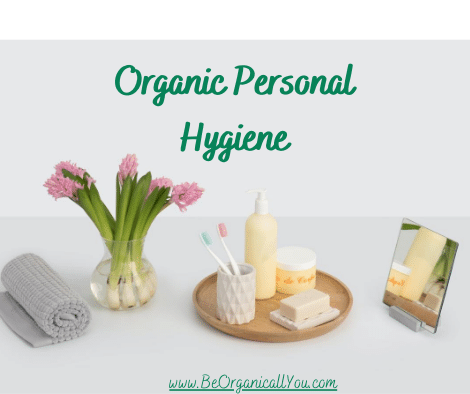2020’s Best Organic Personal Hygiene [Protect your family]
Organic Personal Hygiene
We are concerned about what we put into our bodies (and rightfully so) but we seldom consider what we put on our bodies. Everything we eat and every product we use has the potential to cause harm if we’re not careful and we don’t choose healthy and safe products. The problem is when we attempt to move toward a more natural hygienic routine, we may become a bit overwhelmed.
We can find literature all over the Internet. There are hundreds of claims about practically every ingredient in your favorite drugstore products. The problem is “How do you know where to start?” The simplest thing to do is begin with the basics. Learn about organic personal hygiene.
What do you use every day that could easily be exchanged for something more organic?
The amount of choices is astounding.
The good news is that as the demand for safe, organic personal hygiene products rises so does the number of manufacturers that provide them. So, let’s get started.
Deodorant
Deodorant and antiperspirant are things we all need (and hopefully use) every day. We’ve used them practically every day of our lives since puberty, so this one may be difficult to wrap our head around.
However, have you ever read the ingredients list of your favorite brand? The most common are aluminum chlorohydrate and parabens.
The first, aluminum chlorohydrate, is used to block sweat from escaping the pores.
Experts report that this ingredient shows up in practically every big-name brand and has been linked to breast cancer, prostate cancer, and Alzheimer’s disease. THAT is NOT good!
Although there’s no solid, evidence that the aluminum in most deodorants and antiperspirants is directly related to these diseases, scientists have found traces of aluminum in the cells of breast cancer victims. That is enough evidence for me!
WebMD sites that this type of cancer commonly shows up in the upper outer part of the breast, which is right where we’re applying deodorant.
Parabens have a different effect on our system. This synthetic preservative has the potential to throw hormone levels out of whack, especially our levels of estrogen.
According to the National Cancer Institute, increased levels of estrogen promote the growth of cancer cells. These parabens are the main culprit in mirroring estrogen. Not only does this substance disrupt our natural hormone levels, but it has also been linked to birth defects and organ toxicity. Wow!!!
While several brands have omitted this ingredient from their production lines, there are still several who continue to use it.
Shampoo
Every bottle of shampoo you see at the grocery store more than likely has one if not all these harmful chemicals:
- Sodium Lauryl Sulfate (SLS)
- Sodium Laureth Sulfate (SLES)
- Parabens
- Fragrance
- Polyethylene Glycol
These substances have been linked to issues such as inflammation, rashes, kidney damage, developmental issues in unborn children, and hair loss. That’s just to name a few! The Journal of Investigative Dermatology has found these ingredients to cause damage to our DNA possibly cause eczema. With these chemicals in your shampoo, you’re probably doing more harm than good every time you lather up.
Toothpaste
This is usually when people start to listen up. For some reason, we pay more attention to the things going into our bodies than what goes on them and for good reason. Logically, a substance coming into direct contact with our soft tissue is more likely to be absorbed causing damage more rapidly. Enter the chemical makeup of your favorite minty toothpaste.
Sodium fluoride, triclosan, SLS (yes, the same stuff in your shampoo), and hydrated silica are the most common offenders. News USA reports that triclosan is listed as a pesticide and has been cited as having negative effects on the thyroid and levels of estrogen.
Remember that SLS from your shampoo? When it comes into contact with your mouth, it can cause skin corrosion and painful canker sores.
Other side effects.
Diarrhea, depression, and death. Granted, the last three consequences were discovered during a study involving lab rats, but none the less, incredibly alarming. Why take a chance?
So, what now?
Start reading the labels in your medicine cabinet. You’ll more than likely find that several of those products have one or more of the chemicals listed here. If you see them, toss the products and look into other options like buying from organic manufacturers or make organic personal hygiene products yourself.
Homemade Deodorant
Deodorant, for instance, can be replaced with a concoction of baking soda, coconut oil, arrowroot powder, and essential oils to add your favorite fragrance.
Homemade Shampoo
Use the exact same ingredients used for the DIY deodorant; just replace the arrowroot powder with castile soap. If homemade products aren’t your thing, don’t fret.
Dozens of companies have jumped on the organic bus and sell their products in health food stores and online.
Notable brands are:
The bottom line, when choosing personal hygiene products, it’s best to stick with those that do not contain synthetic ingredients; use organic personal hygiene products. Do your own research and figure out what works for you!
Be Healthy. Be happy. BeOrganicallYou!



